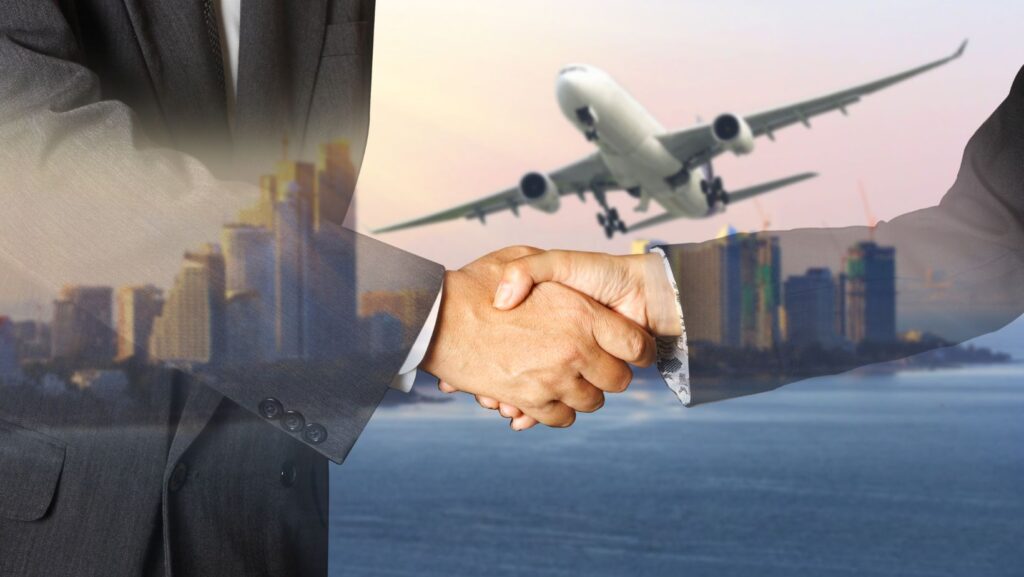In a world where change is the only constant, the realm of business travel isn’t exempt. Those who’ve been on the move for work are witnessing a dynamic shift in trends. So, what’s shaping the future of corporate journeys?
This article dives into the evolving landscape of business travel. It’s a deep exploration of trends that are not just transforming the way professionals travel, but also how they perceive these trips. From technology advancements to sustainability concerns, these trends are redefining the business travel scene.
Business Travel Trends
 Recognizing evolving business travel trends, it becomes crucial for professionals and decision-makers. Technology advancements drive the trend, with mobile booking apps now reigning as a top preference. For instance, 48% of corporate travelers reportedly use apps to manage their travel itinerary, showcasing the shift towards digitalization. Additionally, sustainability has emerged as an impacting factor. Enterprises increasingly adopt eco-friendly measures such as carbon offset programs. For instance, airlines like Delta have committed to neutralize their carbon emissions by 2050. Lastly, bleisure—combining business and leisure travel—also underlines the trend, among 60% of business travelers who prefer adding leisure time to their business trips.
Recognizing evolving business travel trends, it becomes crucial for professionals and decision-makers. Technology advancements drive the trend, with mobile booking apps now reigning as a top preference. For instance, 48% of corporate travelers reportedly use apps to manage their travel itinerary, showcasing the shift towards digitalization. Additionally, sustainability has emerged as an impacting factor. Enterprises increasingly adopt eco-friendly measures such as carbon offset programs. For instance, airlines like Delta have committed to neutralize their carbon emissions by 2050. Lastly, bleisure—combining business and leisure travel—also underlines the trend, among 60% of business travelers who prefer adding leisure time to their business trips.
The Basics of Business Travel
Business travel manifests an essential aspect of corporate dynamics, presenting strategic opportunities and challenges. Amid shifting trends, comprehension of its fundamentals elucidates adept navigation.
 First, anticipating discrepancies emerges as a critical skill, as 70% of business trips encounter alterations, indicating a need for flexible arrangements.
First, anticipating discrepancies emerges as a critical skill, as 70% of business trips encounter alterations, indicating a need for flexible arrangements.
Second, security and health necessitate attention with 63% of travelers affirming safety as their primary concern. Solutions like insurance and precautionary measures become imperative in such instances.
Lastly, enhancing productivity during transit and at the destination constitutes a vital consideration. A survey revealed that 49% of business travelers struggle with maintaining productivity on the move, accentuating the importance of creating convenient and conducive working conditions.
An understanding of these basics enables business travelers to adapt, succeed, and capitalize on the trends, fostering a progressive approach to corporate travel.
Impact of COVID-19 on Business Travel
In 2020, the disruption brought by COVID-19 rattled the business travel landscape profoundly. The pandemic served as a catalyst for dramatic changes, which are bound to influence the future of corporate travel. With physical distancing measures prioritized globally, companies have shifted from face-to-face meetings to virtual discussions, driving businesses to revisit their travel protocols.
 Most notably, the emphasis on health and safety surged, requiring stringent sanitization protocols and health screening procedures during trips. For a more detailed analysis, consult the Global Business Travel Association’s survey from 2020; it offers an in-depth view on the extensive changes, such as 98% of companies cancelling international business trips and 92% halting all or most domestic travel.
Most notably, the emphasis on health and safety surged, requiring stringent sanitization protocols and health screening procedures during trips. For a more detailed analysis, consult the Global Business Travel Association’s survey from 2020; it offers an in-depth view on the extensive changes, such as 98% of companies cancelling international business trips and 92% halting all or most domestic travel.
Despite these constraints, innovation hasn’t taken a backseat. Emerging business travel practices cater to new norms with flexible booking options and extensive’safety first’ initiatives. Allies such as mobile apps now offer updated COVID-19 information, enabling seamless, secure, and informed corporate travel. While it’s clear the pandemic shook up business travel immensely, the sector seems well-prepared to navigate the changing tides.
Future of Business Travel
As the landscape of corporate journeys continues to evolve, it’s clear that the future of business travel hinges on adaptability. The integration of technology, sustainability, and bleisure trends are redefining the way professionals travel. The industry’s response to the COVID-19 crisis has further underscored the importance of flexibility, with a notable shift towards virtual meetings and an emphasis on health protocols. Despite the hurdles, the sector’s innovative approach shines through in its flexible booking options and safety initiatives. The business travel industry is not just surviving in the face of adversity, it’s evolving. As it navigates through this changing environment, it’s prioritizing health, safety, and productivity. The future of business travel is here, and it’s resilient, adaptable, and ready to meet the needs of the modern professional.



